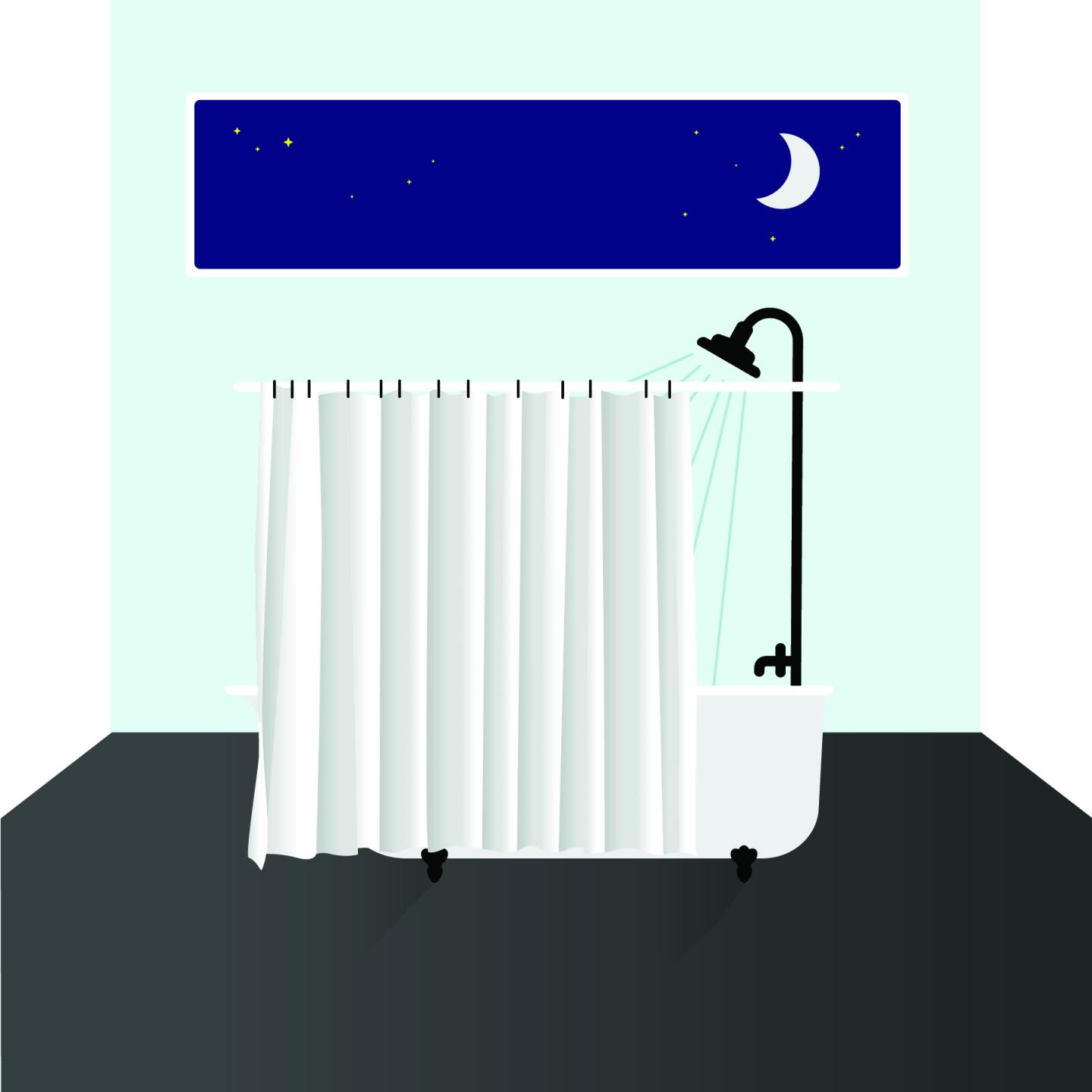Researchers in the Cockrell School of Engineering found that bathing 1-2 hours before bedtime in water of about 104-109 degrees Fahrenheit can significantly improve your sleep

Credit: Cockrell School of Engineering, The University of Texas at Austin
Biomedical engineers at The University of Texas at Austin may have found a way for people to get better shuteye. Systematic review protocols — a method used to search for and analyze relevant data — allowed researchers to analyze thousands of studies linking water-based passive body heating, or bathing and showering with warm/hot water, with improved sleep quality. Researchers in the Cockrell School of Engineering found that bathing 1-2 hours before bedtime in water of about 104-109 degrees Fahrenheit can significantly improve your sleep.
“When we looked through all known studies, we noticed significant disparities in terms of the approaches and findings,” said Shahab Haghayegh, a Ph.D. candidate in the Department of Biomedical Engineering and lead author on the paper. “The only way to make an accurate determination of whether sleep can in fact be improved was to combine all the past data and look at it through a new lens.”
The paper explaining their method was recently published in the journal Sleep Medicine Reviews.
In collaboration with the UT Health Science Center at Houston and the University of Southern California, the UT researchers reviewed 5,322 studies. They extracted pertinent information from publications meeting predefined inclusion and exclusion criteria to explore the effects of water-based passive body heating on a number of sleep-related conditions: sleep onset latency — the length of time it takes to accomplish the transition from full wakefulness to sleep; total sleep time; sleep efficiency — the amount of time spent asleep relative to the total amount of time spent in bed intended for sleep; and subjective sleep quality.
Meta-analytical tools were then used to assess the consistency between relevant studies and showed that an optimum temperature of between 104 and 109 degrees Fahrenheit improved overall sleep quality. When scheduled 1-2 hours before bedtime, it can also hasten the speed of falling asleep by an average of 10 minutes.
Much of the science to support links between water-based body heating and improved sleep is already well-established. For example, it is understood that both sleep and our body’s core temperature are regulated by a circadian clock located within the brain’s hypothalamus that drives the 24-hour patterns of many biological processes, including sleep and wakefulness.
Body temperature, which is involved in the regulation of the sleep/wake cycle, exhibits a circadian cycle, being 2-3 degrees Fahrenheit higher in the late afternoon/early evening than during sleep, when it is the lowest. The average person’s circadian cycle is characterized by a reduction in core body temperature of about 0.5 to 1 F around an hour before usual sleep time, dropping to its lowest level between the middle and later span of nighttime sleep. It then begins to rise, acting as a kind of a biological alarm clock wake-up signal. The temperature cycle leads the sleep cycle and is an essential factor in achieving rapid sleep onset and high efficiency sleep.
The researchers found the optimal timing of bathing for cooling down of core body temperature in order to improve sleep quality is about 90 minutes before going to bed. Warm baths and showers stimulate the body’s thermoregulatory system, causing a marked increase in the circulation of blood from the internal core of the body to the peripheral sites of the hands and feet, resulting in efficient removal of body heat and decline in body temperature. Therefore, if baths are taken at the right biological time — 1-2 hours before bedtime — they will aid the natural circadian process and increase one’s chances of not only falling asleep quickly but also of experiencing better quality sleep.
The research team is now working with UT’s Office of Technology Commercialization in the hopes of designing a commercially viable bed system with UT-patented Selective Thermal Stimulation technology. It allows thermoregulatory function to be manipulated on demand and dual temperature zone temperature control that can be tailored to maintain an individual’s optimum temperatures throughout the night.
###
Media Contact
John Holden
[email protected]
Original Source
https:/




